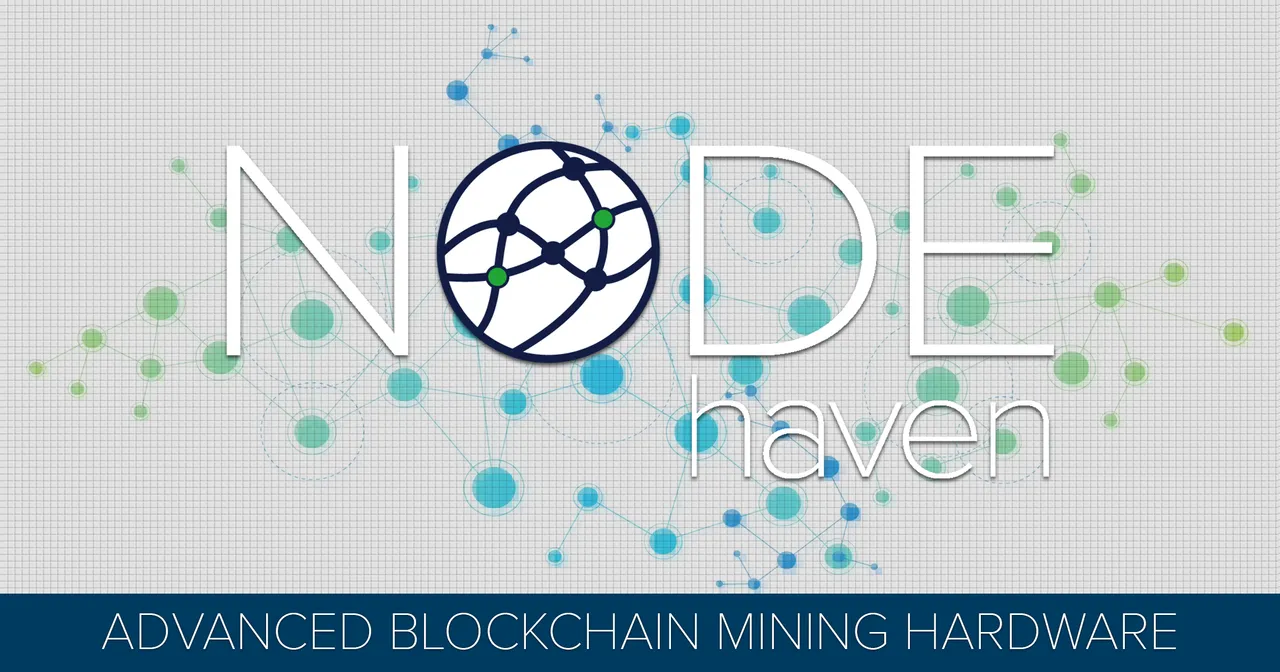
NODE Haven, a US-based blockchain hardware manufacturer, provides everyone the capacity to have the same advantages miner manufacturers have themselves: First access to advanced miners with a price based on cost of production. NODE Haven Mining (NODE Haven) aims to address these issues and the future of Bitcoin as a whole by tokenizing the ASIC miner development and assembling process. The decentralized model incentivizes NODE Haven to act in the independent crypto‐mine operator's best interest as opposed to current chip manufacturers. The mining group deserves a better alternative and NODE Haven, together with miners everywhere, will decentralize the mining scene.
The engineering cost to develop single‐purpose mining ASICs has led to the arrangement of niche manufacturers that have also began their own particular crypto‐mining operations. Mining is especially advantageous for these Bitcoin ASIC manufacturers because they acquire equipment at production cost. This advantage has allowed certain ASIC manufacturers to influence a large of percentage of total hash‐rate and control the distribution of mining equipment. Unexpectedly, by deciding what number of miners are sold to the market and their identity sold to, these ASIC manufacturers are operating as third‐party intermediaries. Needless to say, Satoshi couldn't have foreseen this development when Bitcoin was created. NODE Haven poses that profit‐motive drives the aforementioned centralization of power and any PoW cryptocurrency that is reliant on the hardware that these ASIC manufacturers produce will suffer. The manufacturers' money related support, governance structure and profit‐seeking motives drive them to empty value out of the associated crypto‐currencies that they claim to serve. In essence, the crypto‐currency group is paying a debt to the ASIC manufacturers that invested into the development of the equipment they sell. The service of this debt is paid in profit‐margin and control of how the ASIC equipment is distributed. In order to circumvent the control that these ASIC manufacturers have, NODE Haven proposes a co‐operative business model where crypto‐currency mine operators collectively invest in the development of the advanced mining equipment that they need.
Market forces are driving customarily structured Bitcoin equipment manufacturers to guide the flow of advanced ASIC crypto‐miners into their own particular crypto‐mines as well as mass purchasers. This practice centralizes the crypto registering power and is transforming Bitcoin into a corporate fiat currency. Before the bear market in 2014 there were numerous startups developing ASIC crypto‐miners, however today there are just four ASIC crypto‐miners currently shipping products, often with presales selling out in a matter of hours.
The rise in Bitcoin trouble has forced the need for cutting‐edge chip technology development, precipitously increasing forthright engineering costs to produce competitive equipment. Numerous startups have achieved relative success with beginning design, yet have ultimately fizzled out due to absence of necessary capital. Crypto‐mine operators are left with meager prospects for development and an uncertain future because of dependence on manufacturers that have no incentive to be expected, or transparent with roadmaps. NODE Haven Mining (NODE Haven) aims to address these issues and the future of Bitcoin as a whole by tokenizing the ASIC miner development and assembling process. The decentralized model incentivizes NODE Haven to act in the independent crypto‐mine operator's best interest as opposed to current chip manufacturers. The mining group deserves a better choice and NODE Haven, together with miners everywhere, will decentralize the mining scene.
NODE Haven Mining will subsidize development and production of next generation ASIC miners (Bitcoin, AI, Etc) using an alternative, novel Product Development Vehicle (PDV). Notwithstanding acceleration of development, the PDV model incentivizes the manufacturer to sell quality goods and services at the lowest cost to the consumer. This is in stark contrast to the Profit Seeking Company (PSC) that sells products at the highest price that the market will bear. Why is t
his? Don't the two companies seek to produce products with the most value at any rate expense? The difference lies in the relationship between how management is compensated and how products are priced. Management compensation in a PSC is based on profit‐margin in tandem with number of units produced. The profit‐margin is the difference between the cost to produce the item and the price the consumer pays for that item. As shown before, the sale price is not considerate of the consumer's needs.
Inside the PDV ecosystem, the managers are rewarded with the same tokens that will later be redeemed for products they are creating. Essentially, through the PDV structure, managers are also consumers and are incentivized to always act in light of the consumer. This is in contrast to PSC managers that are incentivized to exploit market demand for greatest pick up. The buying power of each NODE token is maximized by creating valuable products and services at a lower cost. There is no incentive to charge more tokens for the same item as that decreases the inherent value of the token. Less NODE tokens per item equals more value per NODE token. Consequently, if managers of a PDV were to charge more tokens for the same item, the value of their token position would decrease. By creating a framework where managers are simultaneously consumers, efficiency of capital is encouraged, waste discouraged and nature of item, assured.
Visit the links below for more information:
https://www.nodehaven.com/
https://www.nodehaven.com/assets/node-whitepaper.pdf
Authored by Lelvin: https://bitcointalk.org/index.php?action=profile;u=1275173